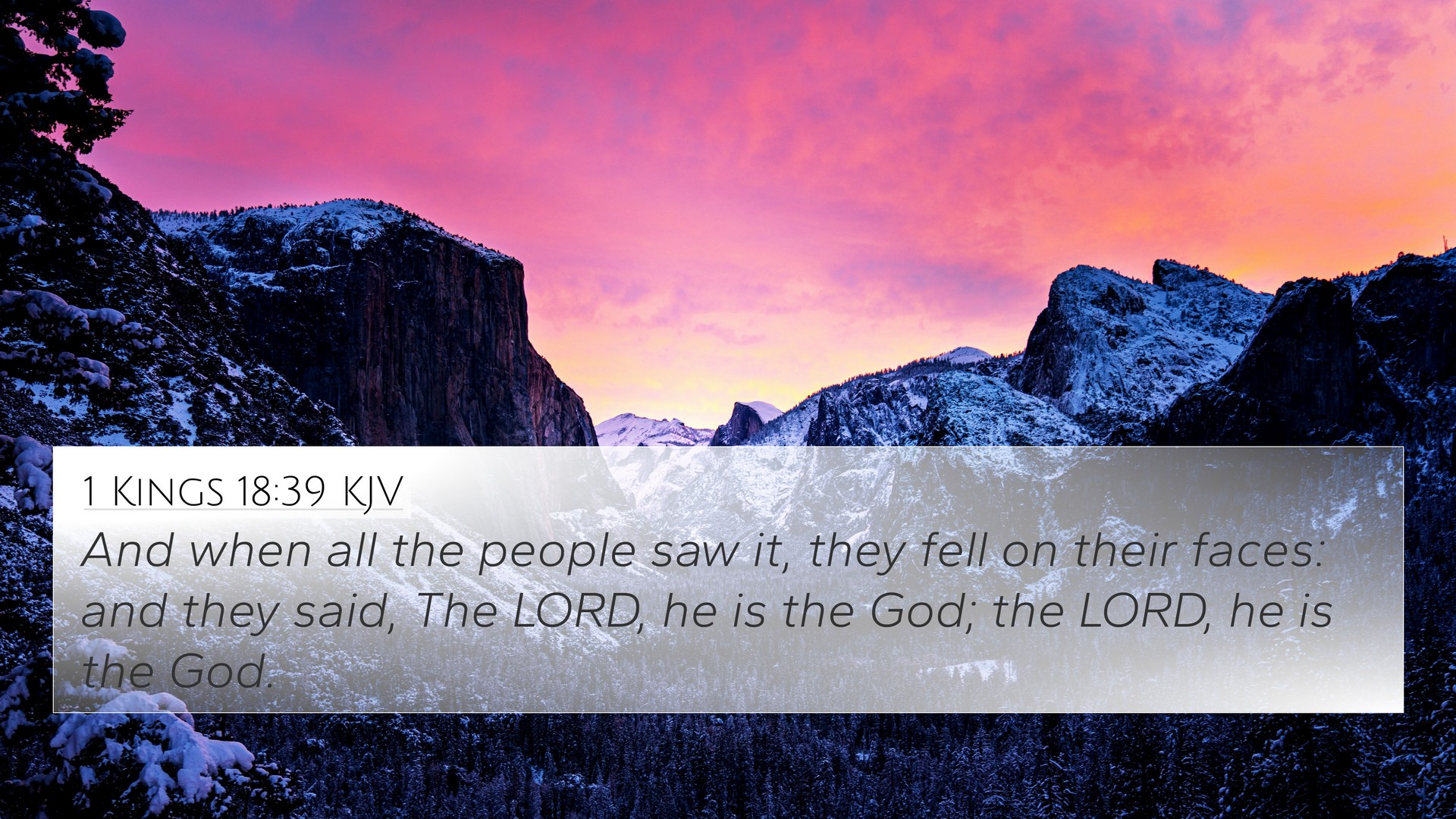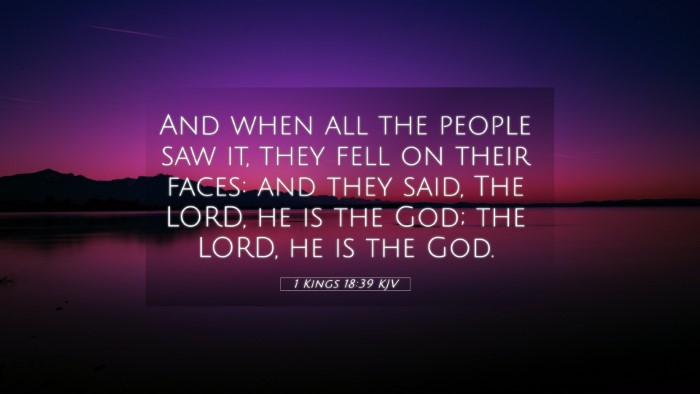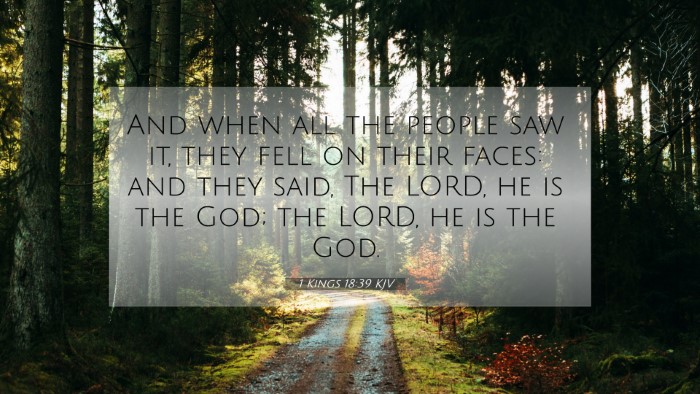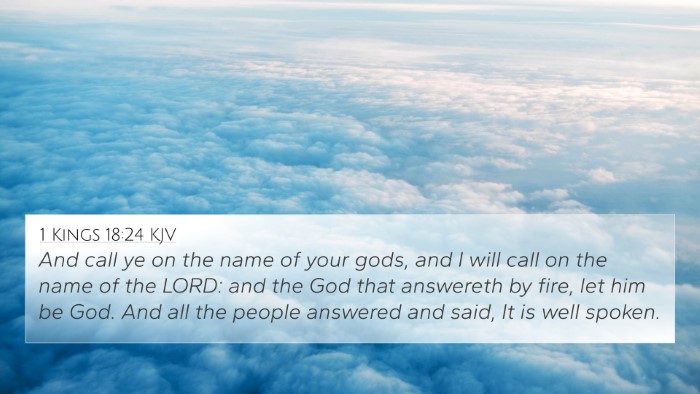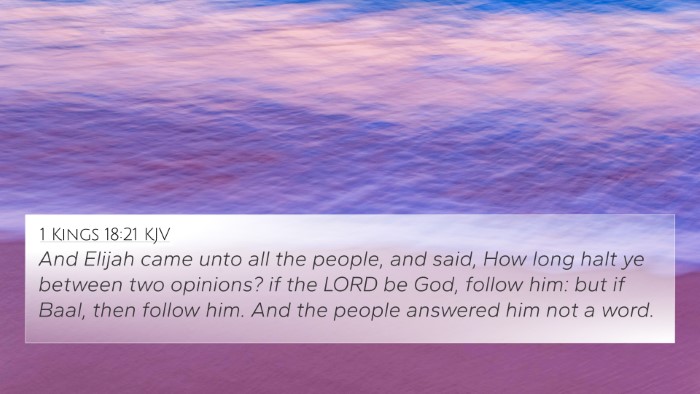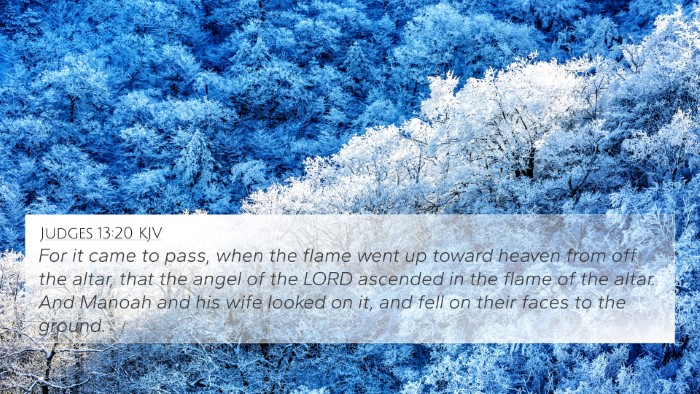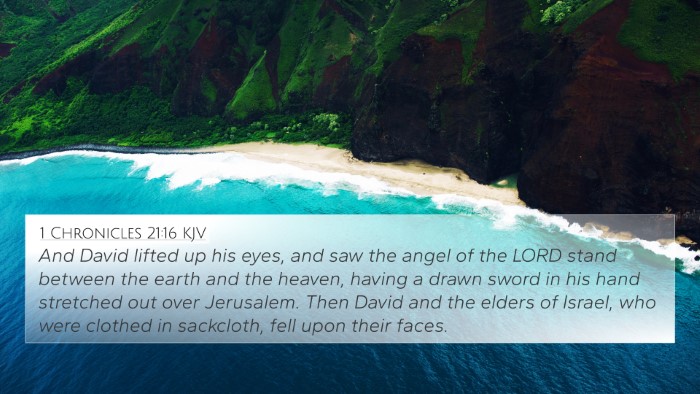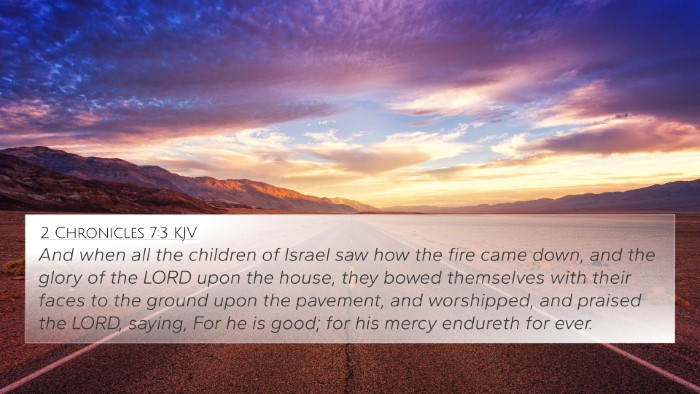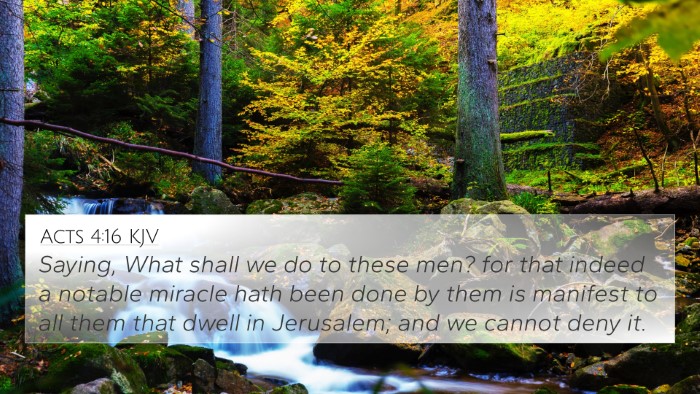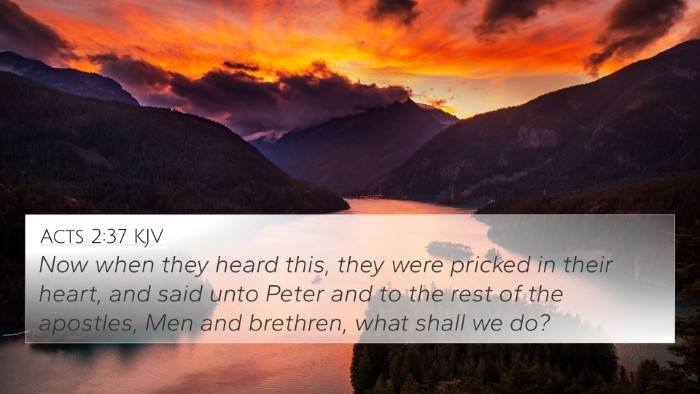Understanding 1 Kings 18:39
1 Kings 18:39 states: "When all the people saw it, they fell on their faces; and they said, The Lord, he is the God; the Lord, he is the God."
This powerful moment occurs during a significant confrontation between the prophet Elijah and the prophets of Baal on Mount Carmel. It highlights the sovereignty and supremacy of God over false idols, leading to profound implications for faith and devotion.
Summary of Commentary Insights
Significance of the Event
As Matthew Henry notes, this moment serves as a validation of Elijah's prophetic ministry and the contest against Baal's prophets. It underscores the idea that when God demonstrates His power, the only appropriate response is worship.
Albert Barnes emphasizes the transformative nature of witnessing God's miraculous acts. The people's immediate turn to God illustrates a deep realization of His authority and the futility of idol worship.
Adam Clarke points out that the event was not just about the display of God's power but also about instilling belief in the hearts of the Israelites, reinforcing their covenant relationship with the Lord.
Response of the People
The falling of the people on their faces signifies a moment of humility and recognition of God's greatness. They proclaimed "The Lord, he is the God," a clear declaration of their renewed faith. This response reflects a theme found throughout Scripture where encounters with the divine lead to reverence and worship.
Bible Verse Cross-References
- Exodus 20:3-5 - The commandment against having other gods before the Lord reinforces the theme of exclusive worship.
- 1 Kings 8:60 - "That all the peoples of the earth may know that the Lord is God; there is no other," mirrors the call to recognize God’s sovereignty.
- Psalm 86:10 - "For you are great and do marvelous deeds; you alone are God," supports the acknowledgment of God’s unique power.
- Isaiah 45:6 - "That people may know, from the rising of the sun to the place of its setting, that there is none besides me. I am the Lord, and there is no other," aligns with the revelation of God's singular authority.
- Romans 10:9 - "If you declare with your mouth, 'Jesus is Lord,' and believe in your heart that God raised him from the dead, you will be saved," connects the recognition of God as central to salvation.
- Philippians 2:10-11 - "That at the name of Jesus every knee should bow, in heaven and on earth and under the earth," further emphasizes the universal acknowledgment of God’s lordship.
- John 14:6 - "Jesus answered, 'I am the way and the truth and the life. No one comes to the Father except through me,'" points to Christ as the encompassing fulfillment of divine authority.
- Acts 4:12 - "Salvation is found in no one else, for there is no other name under heaven given to mankind by which we must be saved," reiterates the necessity of recognizing God's appointed Savior.
- 2 Chronicles 7:14 - The call for humility and prayer aligns with the people’s response after witnessing God's power on Mount Carmel.
- Deuteronomy 6:4 - "Hear, O Israel: The LORD our God, the LORD is one," lays the foundational insight into monotheism that informs their proclamation.
Thematic Bible Verse Connections
The connection established in 1 Kings 18:39 exemplifies a significant theme throughout the Bible: the recognition of God's sovereignty leads to authentic worship. This can be seen in various passages that invoke a similar response of humility, faith, and the acknowledgment of God as the only true deity.
Cross-Referencing Biblical Texts
Cross-referencing helps deepen understanding and draws connections between different scripture verses. For example, the worship response in 1 Kings 18:39 can be linked to the worship responses seen in Exodus during the delivery from Egypt (Exodus 15:1-2) and in the New Testament when the multitude recognized Jesus (Matthew 21:9).
Inter-Biblical Dialogue
1 Kings 18:39, while rooted in the Old Testament narrative, engages in a dialogue with New Testament themes where the recognition of Jesus’ divine authority also leads to similar worship responses (as seen in Matthew 14:33 when Jesus calmed the storm).
Tools for Bible Cross-Referencing
For those exploring these themes, utilizing a Bible concordance or a cross-reference Bible study guide can be beneficial in identifying similarities and thematic connections.
As you study, consider the following methods for effective cross-referencing:
- Identify Keywords: Look for key terms or phrases in verses that may link to others.
- Thematic Analysis: Group verses that share similar themes or messages.
- Scriptural Context: Understand the broader context within which verses are situated, enhancing the understanding of their connections.
Conclusion
1 Kings 18:39 serves as a pivotal moment that encapsulates the recognition of God's sovereignty, challenges idolatry, and calls believers to respond with worship. Understanding this verse through cross-referencing and thematic exploration enriches one’s faith and comprehension of the divine narrative throughout the Scriptures.
